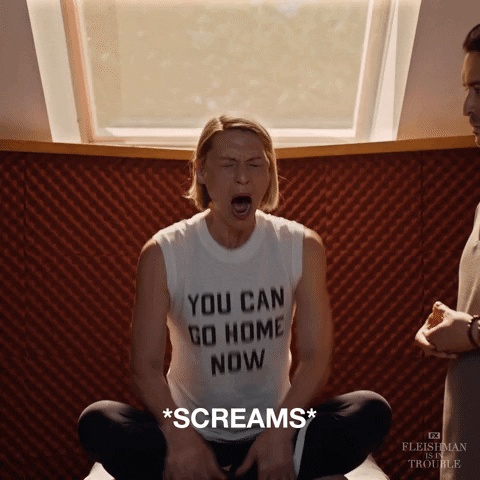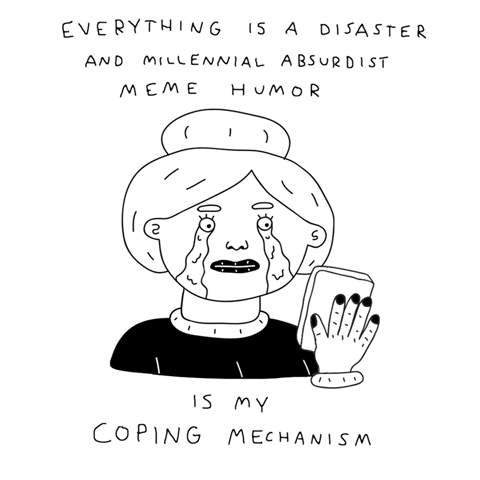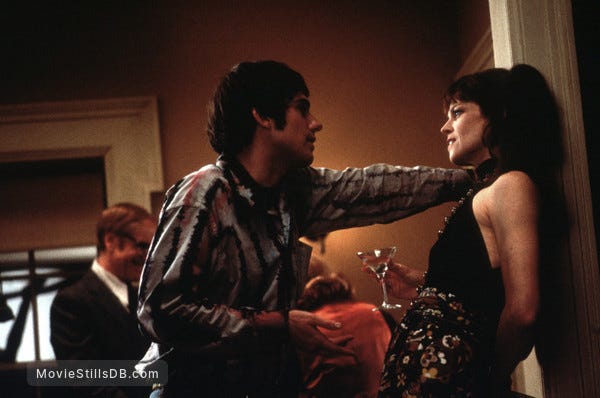I have begun making terrible jokes about my own retirement lately. And when I say jokes, don’t get it twisted, they aren’t all that funny, just ~goofy~.
When I retire, I will move to New Orleans with my little squad of chihuahuas and write and paint in a house along the Mardi Gras parade route, where I will distribute beads as I see fit on my hoverboard wheel chair. When I retire, I will start a creative commune for other retired people in Santa Fe, New Mexico. We will eat delicious burritos, wear only caftans and turquoise, and instead of church services once per week we will take edibles and go to the Georgia O’Keefe Museum. When I retire, me and my tiny dogs will move to a tiny house on the west coast of Maui where we will sit on the porch and cry tears of joy while watching humpback whales nurse their babies all day and all night.
The retirement plans I joke about are equal parts over-indulgent and reliant upon a deep, fabled fountain of wealth. But the part that’s the funniest? The idea of a retirement you can plan on at all, or hell, enough stability you can fully rely on at all.
See? That’s the joke.
So with this in mind, let’s talk about That Op-Ed. It’s been making the rounds this week in part because of the wildly silly avocado toast visual joke, but Jessica Grose’s NYT op-ed, “Millennials are hitting middle age—and it doesn’t look like what we were promised” has hit a nerve for good reason.
Grose brings up that the eldest members of the millennial generation are now hitting their mid-40’s, but the usual tropes of middle age—suddenly wishing to rebel against suburban conformity, nostalgic for the days before kids and marriage, extramarital affairs, making big impulsive purchases like luxury cars—don’t seem to apply. anymore.
She talks to several millennials who, on paper, did everything right. They were highly educated. They went into, and succeeded within, lucrative careers. They bought houses. They started families.
But as one woman, Dr. Caitlin Dunham, describes it, the last thing she can imagine is wanting to rebel against it:
Things have been difficult for her family, [Dr. Dunham] said, but one thing she isn’t worried about: a midlife crisis just over the horizon. “My whole adult life has been one long crisis,” she said. “Career crises, education debt, watching my I.R.A. lose a quarter to half of its value a couple of times, child care expenses, fraying social fabric, wage pressures and, above all, insecurity. I am a professional married to a professional, but our jobs can go up in smoke at the drop of a hat. We can’t rely on anything but ourselves and can only hold out hope that we won’t eat cat food once our bodies break down and we are forced into impoverished retirement.” She said she knows that sounds dramatic, but it’s how she really feels. Amid all this, who’s got time to worry about whether they’re feeling fulfilled?
Grose is making the argument that:
(a) the “midlife crisis” trope as we know it was always, of course, a very narrow view of understanding what existential questions come up midlife, specifically (say it with me now) solely white, educated, upper middle class men, but:
(b) the many, many crises we’ve faced have taken a toll not just on the timing of our lives, but what we find fulfilling at all. The once taken-for-granted rights of passage such as having children or buying a home are either perpetually put on hold, skipped over entirely, or shelved for a future none of us can actually envision for ourselves.
The op-ed also acknowledges a feeling of shame, or perhaps dissidence, that’s come up for many people in my generation, myself included. That for many of us, especially folks like me who grew up upper-middle-class or plain old wealthy, we will not out-earn or materially succeed our parents. Even with generational wealth, we will not exceed what we inherited. The perennial rise of the American dream of prosperity has stuttered, if not halted.
And for those who took out weighty student loans to live up to the potential they were told they had now find themselves still chained to it with little or nothing to show. There’s a shame there too, but also a more-than-understandable rage. What do you mean I’m supposed to have a midlife crisis when I’m still paying off interest on loans I signed off on at age 18?
What doesn’t come up in Grose’s writing about midlife anxiety for millennials, however, is the other parts of the changing social fabric that have evolved to make our lives more personally fulfilling.
More and more people have been able to live their adult lives openly and proudly as queer, trans, or nonbinary (not that this is without its own dangers these days—as Grose acknowledges, many middle-aged queer folks just want a safe and stable life free of homophobic legislation). Millennials are more interested in social justice as a whole in addition to our own individual success and survival. There’s less social capital in having a traditional family or children, and fewer expectations from one’s peers that everyone’s personal life should look the same. We’re far more in tune with climate change, environmentalist causes, and the outsized impact our cosmically-miniscule lives can have on the world around us and the generations to come.
Yes, this particularly speaks to a very Liberal Coastal Elite perspective but…I am what I am. And I still think it’s worth considering because let’s face it—did everyone truly have the kinds of midlife crises spelled out in this op-ed? Was a blue collar worker in the midwest buying a fire red Ferrari? (Maybe? Likely no.) As Grose notes, social scientists who studied the “midlife crisis” weren’t casting wide nets. They never studied women. People of color weren’t studied. In other words: those with something to lose from potentially “breaking free” weren’t studied because they weren’t seen as interesting, and because quite frankly there were (and are) too busy fighting for equality to risk losing what they already have.

So what’s the point in all of this thinking about midlife crises? And how does this relate to stupid retirement fantasies?
Even with all my privileges, I know full and well that my life will still not look like the lives my parents and grandparents lived before me. In some ways, my life has shaken out to look semi-traditional, but in many ways, it hasn’t and it won’t. There’s less conformity for me to rebel against in part because of the intentional choices I’ve made for myself, but also because the world I’ve lived in as an adult has never truly been stable, and has looked virtually nothing like the ever-rising prosperity of my childhood.

And this isn’t a bad thing necessarily. If anything, I think us millennials generally speaking are finally realizing just how deep and embedded our anxiety has become into the fabric of who we are. When the society you live in is no longer stable, you reach for comfort and meaning wherever you can, even when those are things that don’t have a monetary value, like volunteer work, activism, advocacy, and community building.
I don’t dream of retirement one day: I dream of stable choice. My desire to watch whales or workshop at the feet of Georgia O’Keefe is less about enjoying retirement savings or the trappings of material wealth or leaving nonexistent children with money. I dream of enough serenity to build something I am proud of for the limited amount of time I am here on this planet to enjoy.
I think the best place to end this thought experiment with is this quote from Grose’s op-ed, rather than another one of my elaborate daydreams:
As Elizabeth Hora, born in 1983 and living in Utah, said: “This is a joke, right? Who has midlife crisis money? That’s a boomer problem, not a millennial problem. We just increase our Lexapro.”







